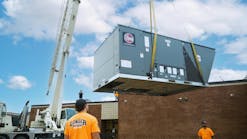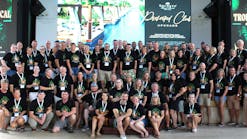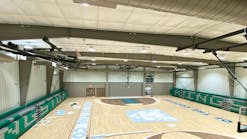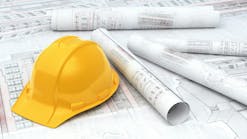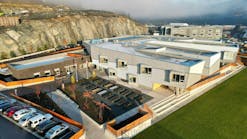By Scott Smith, P.E.
As readers of this magazine, we are passionate about the benefits of the Design/Build business process. It gives our clients a single point of responsibility, performance guarantees, and better projects. It often gives us the ability to work directly with facility owners as opposed to being buried in the subcontractor food chain. And, it enables us to provide value, as opposed to just delivering low-priced metal.
So, why aren’t we doing more Design/Build? Many hours have been devoted to this question, and clearly we can’t comprehensively answer it here. But, we can address a very important aspect of Design/Build — the proposal. A proposal for a Design/Build project is much different from one for a plan/spec job.
In the plan/spec environment, the proposal is an important, but very simplistic document. In essence it says, “Here is our price to complete the work on the plans and specifications. We have excluded the following items. Thank you.”
On larger plan/spec projects, there are contract forms that provide more detail, but, generally speaking, these proposals don’t go into depth about the project performance requirements. The proposals are really just prices.
Following are five rules we use here at Trimech Corp. when preparing Design/Build proposals. I present them as an example of how we approach our clients when selling Design/ Build services to them.
Rule ONE. Never Call Design/Build Proposals “Prices”
In the Design/Build environment, proposals must convey a significant amount of information. By reading our proposals, clients must understand what they are buying, and what they are paying. More importantly, they must become comfortable knowing that we have thought carefully about how to achieve their goals. They must feel we have the best solution, otherwise they won’t buy from us. Our proposals should be much more than prices. They should be descriptive, persuasive documents that happen to include a price.
Rule TWO. Tell Clients about your Good Ideas in the Proposal.
We, as Design/Builders, are often concerned about divulging too much information. We’re concerned that our information, which is often arrived at through our own expense, will be used as free design services by clients. While this can happen, I believe we differentiate ourselves by demonstrating creative solutions, not by hiding them.
Rule THREE. Speak Precisely in Terms of Performance
In the plan/spec environment, our deliverable is providing pipe, duct, parts and pieces in a workmanlike manner, at as low a cost as possible. In the Design/Build world, the deliverable must be a certain level of performance, and that performance had better be intensely relevant to the client’s business. The pipe, duct parts and pieces become a means to an end.
If we know that a client’s success is connected to certain temperature and humidity levels in a manufacturing area, then we should sell temperature and humidity, not rooftop units and ductwork.
Rule FOUR. Have Empathy
Always place yourself in the shoes of your client when developing concepts and preparing proposals. Concepts, proposals, and exclusions should make sense from your client’s perspective. Always ask yourself, “Knowing everything I know about mechanical contracting, what would I do if I were the client?” Once you answer this question, propose it. Your clients will surely buy.
Rule FIVE. Make a Point
Often in technical proposals, it’s very easy to get caught-up in technical detail and lose your audience. Demonstrate the technical and commercial detail to convey the thoughtfulness that goes into the proposals, but do it in a way that reaches your audience quickly. Make good use of executive summaries, and make your technical points as logically as possible.
Remember, you may not know all the people who will read the proposal. It needs to be as legible to the CEO as it is to the project engineer.
Our proposals speak on our behalf. Be sure that you, and more importantly your clients, are happy with what your proposals are saying. n
Scott Smith is vice president of engineering of Trimech Corp., Pompton Plains, NJ. Trimech is a Design/Build/Maintain contracting firm and an operating division of Consolidated Engineering Services, a broad-based building technology services company that operates, maintains, or manages more than 10,000 buildings in 27 states. Smith can be reached at 973/839-8339 or by e-mail at [email protected].
